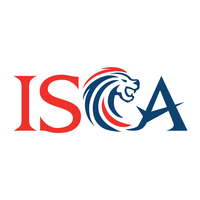EP 200 IMPLEMENTATION GUIDANCE (EP 200 IGs)
ISCA sets standards and guidance relating to professional ethics which are issued as Ethics Pronouncements (EPs). EPs set out high quality ethical standards, including the fundamental principles of ethics, for professional accountants. These are integral for professional accountants to act in the public interest. The process in setting and revising EPs is robust, which promotes public confidence.
From time to time, ISCA may also issue Implementation Guidances to support the accountancy profession in implementing the requirements in EP 200.
EP 200 Implementation Guidances (IGs)
Ethics Pronouncements 200 Implementation Guidances (EP 200 IGs) | Description | Last revised date | |
EP 200 IG 11 | Frequently Asked Questions | November 2018 | |
EP 200 IG 22 | Illustrative Customer Due Diligence Templates | June 2017 |
Notes:
1. EP 200 IG 1
EP 200 IG 1 is issued to provide clarification to professional accountants and professional firms when they implement the requirements in EP 200.
EP 200 IG 1 comprises FAQs which discuss the following areas:
- Section 1 - Who the beneficial owner is;
- Section 2 - What internal policies, procedures and controls to address money laundering and terrorist financing entail and sanction lists for screening; and
- Section 3 - Customer due diligence measures and ongoing monitoring.
The FAQs in EP 200 IG 1 are meant to provide broad guidance when professional accountants and professional firms implement the requirements in EP 200. It is not meant to be an exhaustive list.
The revised EP 200 IG 1 has incorporated conforming amendments resulting from the amendments to EP 200 on 28 March 2017.
2. EP 200 IG 2
The illustrative flowchart and templates in EP 200 IG 2 are designed for professional accountants and professional firms which provide services listed in paragraph 1.5 of EP 200. Professional accountants and professional firms which provide services other than those in paragraph 1.5 may use these illustrations as best practice guide to tailor and adapt for use, as appropriate.
These illustrations are intended to provide broad guidance. They are not intended to be exhaustive; or to replace legislations, regulations or guidelines which may be issued from time-to-time by any relevant authority and which a professional accountant or professional firm is required to comply. Therefore, professional accountants and professional firms should exercise professional judgement to appropriately tailor and adapt these illustrations for use.
To facilitate the use of the templates and forms, please click here for the word document (last amended 28 June 2017).

/infocomm/istock-1065240778-c.jpg?sfvrsn=50a9b558_2)
/audit-assurance/istock-1133945516-c.jpg?sfvrsn=d158128a_2)
/courses/istock-1222725146-c1.jpg?sfvrsn=339e8e96_2)
/leadership-personal-development/istock-1049824998-c.jpg?sfvrsn=3865afcc_12)

.jpg?sfvrsn=d4038e84_0)

/courses/istock-1140691163-c.jpg?sfvrsn=24ccc519_2)
/audit-assurance/istock-1169206203-c.jpg?sfvrsn=1d6f9b25_2)

/business-management-global-connection/istock-1167579720-c.jpg?sfvrsn=ff93f9a5_2)

/professionals/istock-845530100-c.jpg?sfvrsn=46efdedd_2)





/legal-secretarial/istock-866706340-c.jpg?sfvrsn=d7f57b8c_2)